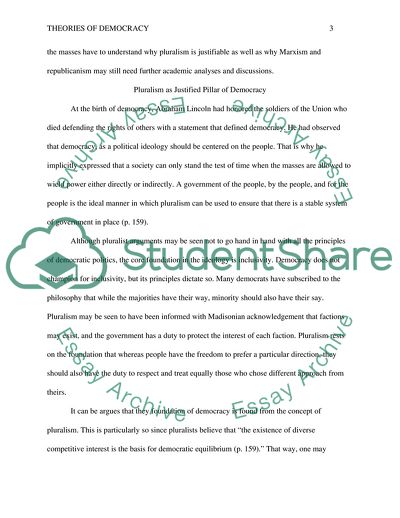Cite this document
(Theories of Democratic Society Essay Example | Topics and Well Written Essays - 1500 words, n.d.)
Theories of Democratic Society Essay Example | Topics and Well Written Essays - 1500 words. https://studentshare.org/sociology/1823986-theories-of-democracy
Theories of Democratic Society Essay Example | Topics and Well Written Essays - 1500 words. https://studentshare.org/sociology/1823986-theories-of-democracy
(Theories of Democratic Society Essay Example | Topics and Well Written Essays - 1500 Words)
Theories of Democratic Society Essay Example | Topics and Well Written Essays - 1500 Words. https://studentshare.org/sociology/1823986-theories-of-democracy.
Theories of Democratic Society Essay Example | Topics and Well Written Essays - 1500 Words. https://studentshare.org/sociology/1823986-theories-of-democracy.
“Theories of Democratic Society Essay Example | Topics and Well Written Essays - 1500 Words”. https://studentshare.org/sociology/1823986-theories-of-democracy.


